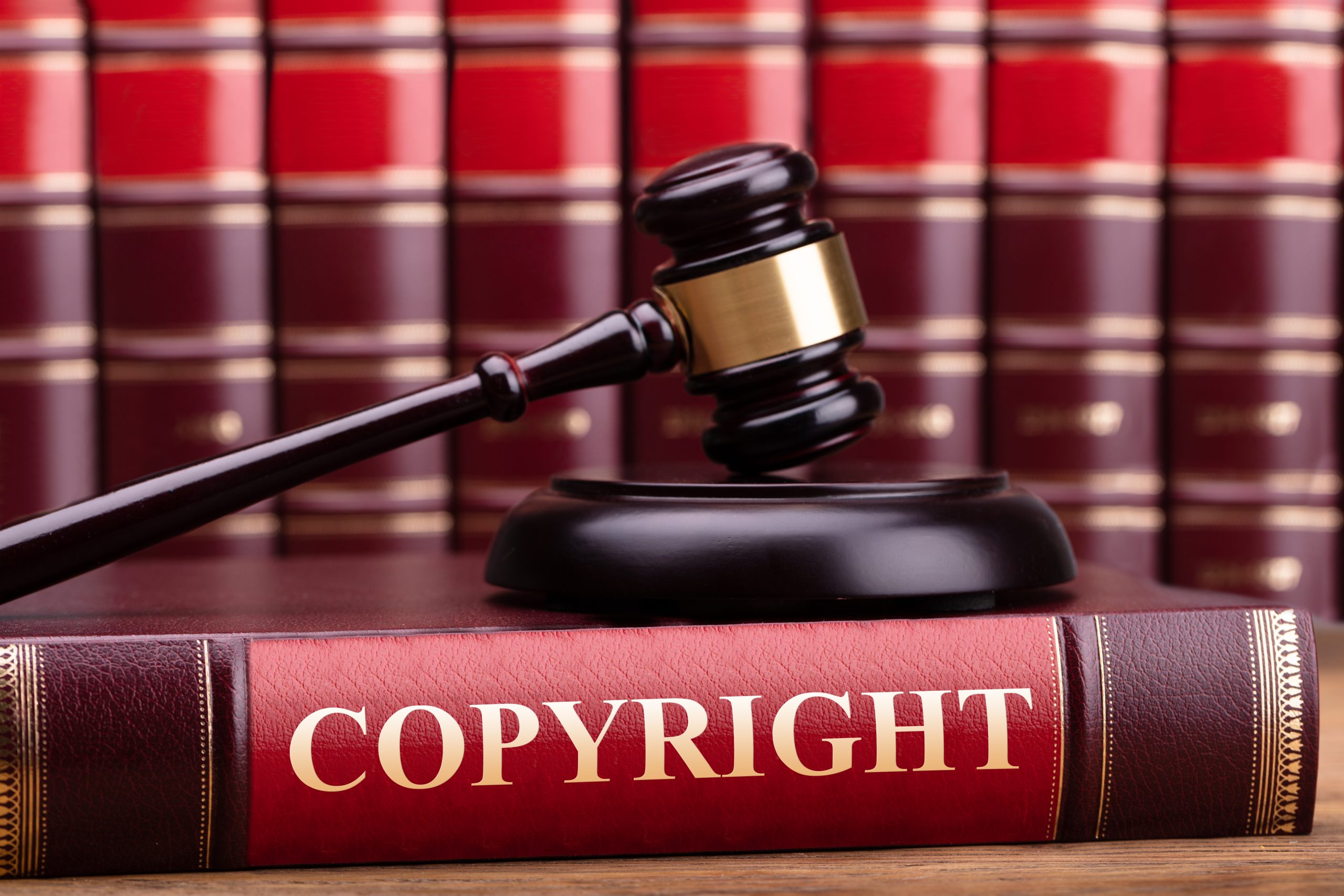“The takeaway from the majority opinion is that those who have authority speak with the force of the law cannot ‘author’ works they make in their authority to make the law.”
 Yesterday, the U.S. Supreme Court affirmed the U.S. Court of Appeals for the Eleventh Circuit’s decision that a state code revision commission cannot claim copyright protection over annotated state code in Georgia et al. v. Public.Resource.Org., Inc. The Court dove into the judicially created “edicts doctrine,” which has not really been explored since the 1800s.
Yesterday, the U.S. Supreme Court affirmed the U.S. Court of Appeals for the Eleventh Circuit’s decision that a state code revision commission cannot claim copyright protection over annotated state code in Georgia et al. v. Public.Resource.Org., Inc. The Court dove into the judicially created “edicts doctrine,” which has not really been explored since the 1800s.
The “original works” in question were supplementary annotations accompanying the statutes in Georgia’s Official Code, known as the Official Code of Georgia Annotated (“OCGA”). These annotations and summaries of judicial decisions were owned by Georgia’s Code Revision Commission (“Commission”), although they were originally authored by a division of the LexisNexis Group under a “work made for hire” contract.
The Commission sued the nonprofit Public Resources.Org (“PRO”) for copyright infringement when PRO posted the OCGA online, annotations and all, without permission. In response, PRO sought declaratory judgment that the entire OCGA was not eligible for copyright protection.
Copyright Protection
The Copyright Act of 1976 extends copyright protection to “original works of authorship fixed in any tangible medium of expression.” We are familiar with the more common examples of original works of authorship, such as books, motion pictures, sound recordings, and music composition. What about annotations?
Notably, the statute lists annotations as a type of derivative work that authors may have rights to.
Copyright Authorship
A central question examined by the Court was whether the Commission qualifies as an “author.” The Copyright Act does not provide an exact definition of who an “author” is. Instead, the language of the statute simply states that copyright protection under the statute vests in the author or authors of the work. Moreover, if the work qualifies as a “work made for hire,” the author is the person for whom the work was prepared. The statute does not discuss whether state entities may be authors.
The Edicts Doctrine
The edicts doctrine is a judicial exception to copyright protection that removes government edicts – or official orders issued by a person of authority- from being eligible for protection. The exception generally means that government officials empowered to speak with the force of law cannot be authors of works they create in their official duties.
The doctrine arose from three main cases in the 19th century. The case Wheaton v. Peters, 33. U.S. 591 (1834), involved a court reporter’s assertion of copyright ownership over judicial opinions. The Court in Wheaton concluded that a judge may not copyright a judicial opinion and therefore cannot assign ownership of his or her judicial opinions. Next, Banks v. Manchester, 128 U.S. 244 (1888) involved a copyright claim over judges’ opinions and material prepared by judges, where the Court held that judges cannot assert copyright protection in works they perform in their capacity as judges. Lastly, in Callaghan v. Meyers, 128 U.S. 617 (1888) the Court held that even though judicial opinions are not eligible for copyright protection, a court reporter may claim copyright in his own explanatory materials since he had no authority to speak with the force of the law.
These cases all touch on whether written judicial opinions may be protected by copyright. As we have seen, they cannot be. The work in question in Georgia et al. is different from the precedent – these are non-binding case summaries and reference material merged to enacted statutes, not just judicial opinions.
District Court Proceedings and the Eleventh Circuit
The District Court found that the annotations were eligible for copyright protection because they did not carry the “force of law.” In siding with the Commission, the District Court entered a permanent injunction against PRO requiring it to stop distributions of the OCGA and to remove its online postings.
The Eleventh Circuit reversed after reviewing the three main “edict doctrine” cases. The Court used a three-factor test to determine whether “the People” are the constructive authors of the annotations: a) the identity of the public official who created the work; b) the nature of the work; and c) the process by which the work was produced. The Eleventh Circuit held that all three factors showed that the annotations were government edicts.
The U.S. Supreme Court upheld the Eleventh Circuit’s decision, but with different reasoning.
SCOTUS Weighs In – Nobody Owns the Law
The Supreme Court focused more on the on analyzing the author instead of the work of authorship. The majority reasoned that if judges acting as judges were prohibited from being authors, then legislators acting as legislators cannot be authors either.
The Court then applied a two-step test gleaned from the three edicts doctrine cases to determine whether the Commission was disqualified as an “author”:
- Does the author qualify as a legislator?
- If yes, was the creation of the work a discharge of its legislative duties?
In this scenario, the majority opinion answered both with a resounding “yes.” Yes, the Commission is a part of the state legislature, due to a lengthy number of reasons including how many legislators are members of the Commission and the legislative funding the Commission receives. Yes, the annotations were created as a discharge of the Commission’s legislative duties because the legislature deemed the commentary and resources as relevant to interpret its laws. Therefore, the Commission was prohibited from being an author under the Copyright Act because it is a legislator that created the annotations as part of its legislative duties.
The takeaway from the majority opinion is that those who have authority speak with the force of the law cannot “author” works they make in their authority to make the law. Nobody can “own” the law. The majority emphasizes that judges and legislators are different from court reporters, who lack authority to make and interpret the law.
Policy Considerations and Access to Annotated Works
Not everyone agreed that the interpretation of the edicts doctrine should be so easily interpreted to apply to state bodies who create annotated works. The Commission and the dissenting opinions both raised possibly troubling policy considerations. Justice Thomas’ lengthy dissent implies that the majority’s opinion gives the edicts doctrine too much breadth and does not square with the Copyright Act. While Justice Thomas focuses his disagreement with the root of the precedent and the interpretation of “author” under the judicial precedent, Justice Ginsburg’s dissent disagreed with the majority’s interpretation of the second prong of the two-part test of authorship.
As for the Commission’s public policy argument that without copyright protection it would be difficult for states to induce private parties’ access to affordable annotated copies for distribution, the majority told it to take that up with Congress. Justice Thomas’ dissent highlights worries about states halting production of annotated codes altogether because of this approach. Ultimately, we will see whether the majority decision will lead to a decrease in market access to statutory annotations or not.
Image Source: Deposit Photos
Author: AndreyPopov
Image ID: 211210396

![[IPWatchdog Logo]](https://ipwatchdog.com/wp-content/themes/IPWatchdog%20-%202023/assets/images/temp/logo-small@2x.png)

![[Advertisement]](https://ipwatchdog.com/wp-content/uploads/2024/04/Patent-Litigation-Masters-2024-sidebar-early-bird-ends-Apr-21-last-chance-700x500-1.jpg)

![[Advertisement]](https://ipwatchdog.com/wp-content/uploads/2021/12/WEBINAR-336-x-280-px.png)
![[Advertisement]](https://ipwatchdog.com/wp-content/uploads/2021/12/2021-Patent-Practice-on-Demand-recorded-Feb-2021-336-x-280.jpg)
![[Advertisement]](https://ipwatchdog.com/wp-content/uploads/2021/12/Ad-4-The-Invent-Patent-System™.png)







Join the Discussion
No comments yet.